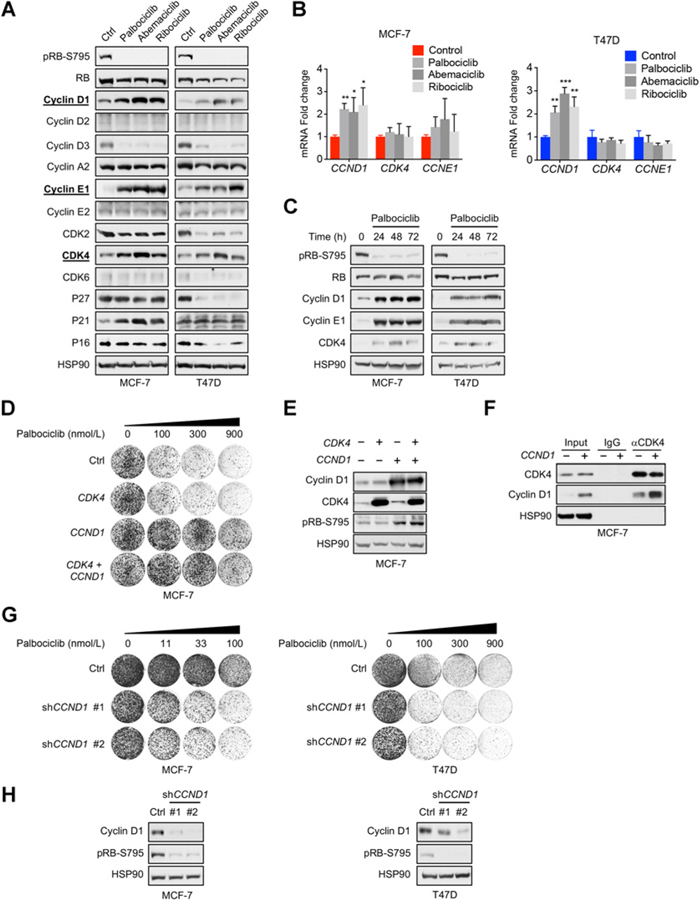Figure 1.
CDK4/6 inhibition induces feedback upregulation of cyclin D1, CDK4, and cyclin E1, which modulate responses to CDK4/6 inhibitors in ER+ breast cancer. A, Immunoblot profiling of key cell-cycle regulators upregulated after exposure to three CDK4/6 inhibitors. MCF-7 and T47D cells were treated for 24 hours with 300 nmol/L palbociclib, 150 nmol/L abemaciclib, or 1 μmol/L ribociclib. B, qRT-PCR analysis of CCND1, CDK4, and CCNE1 after 24-hour treatment with 300 nmol/L palbociclib, 150 nmol/L abemaciclib, or 1 μmol/L ribociclib. mRNA fold change normalized to mRNA of ACTB housekeeping gene. MCF-7: *, P < 0.05; **, P < 0.01; ***, P < 0.001; by Student t test, unpaired, two-sided; (n = 3). C, Immunoblot showing a time course of sustained upregulation of key cell-cycle regulators. Cells were treated with 300 nmol/L palbociclib for 24, 48, and 72 hours. D, Long-term colony formation assays showing resistance to palbociclib after overexpression of CDK4, CCND1, or their combination in MCF-7 cells. Cells were seeded and treated with palbociclib for 10 to 14 days. Palbociclib was refreshed every 3 days. E, Immunoblot analysis of overexpression of CDK4, CCND1, or their combination in MCF-7 cells. F, Immunoblot detection of CDK4 and cyclin D1 of coimmunoprecipitated samples from MCF-7 cells overexpression a control vector or cyclin D1. Coimmunoprecipitation was performed using an antibody specific against CDK4 or a corresponding IgG control antibody. HSP90 served as a loading control. G, Long-term colony formation assays showing enhanced sensitivity to palbociclib in MCF-7 and T47D after knockdown of CCND1 utilizing two independent shRNAs. Cells were seeded and treated with palbociclib for 10 to 14 days. Drugs were refreshed every 3 days. H, Immunoblot analysis of knockdown of CCND1 utilizing two independent shRNAs in MCF-7 and T47D cells.

